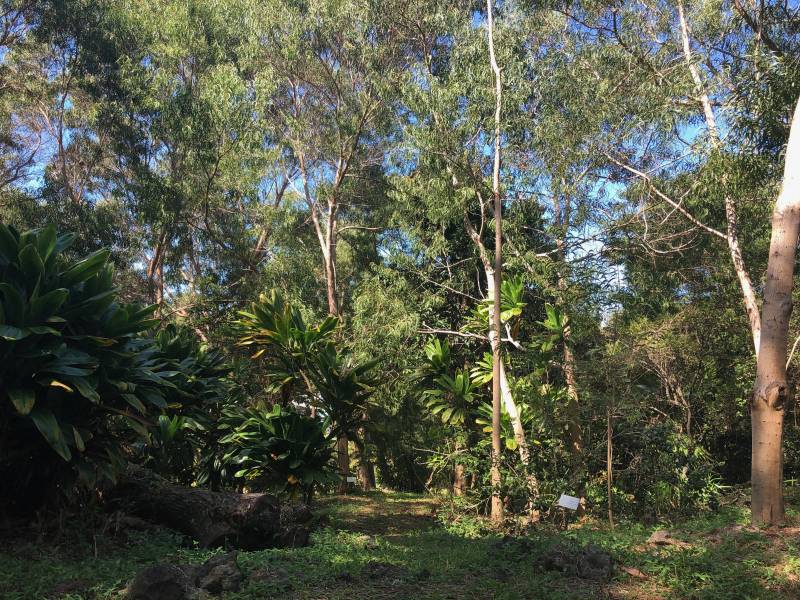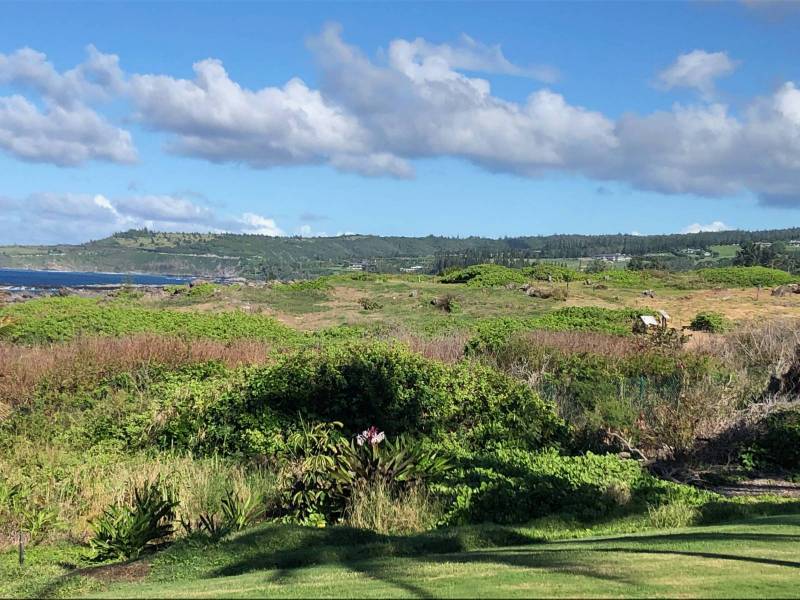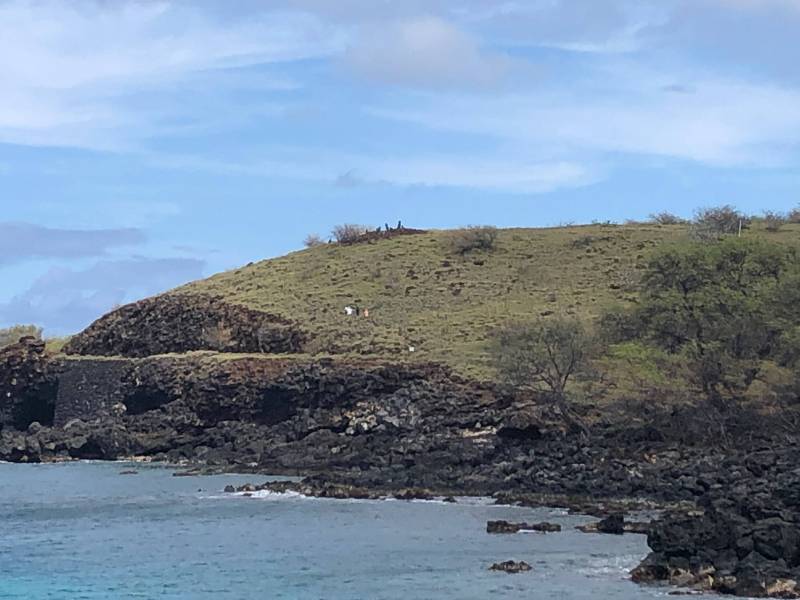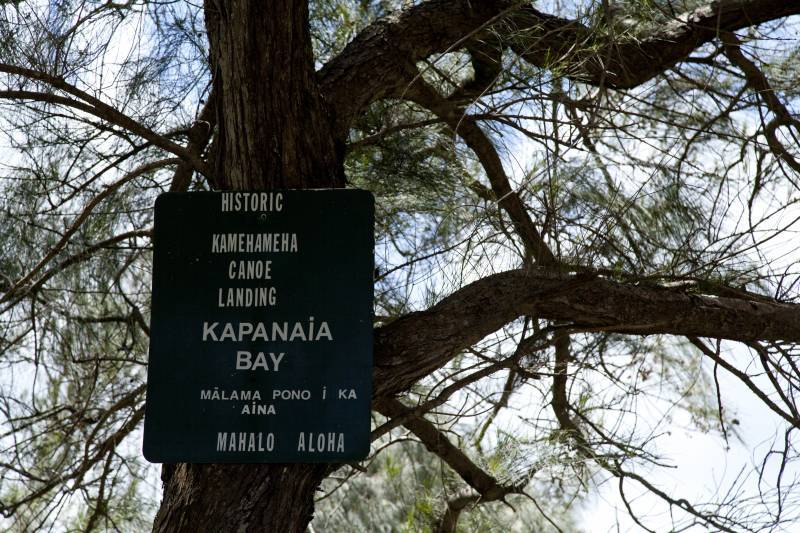Conservation Purchase Or Conservation Easement – Two Preservation Strategies
Conservation purchase, conservation easement, conservation zoning, or state land use designation — all of these “conservation” terms refer to strategies used to protect or limit permitted uses on real estate. The strategy might be imposed by a Hawaii state or county government land use planning entity, or opted on behalf of a private landowner, or potential buyer.
In a previous blog post I explained the difference between zoning (which in Hawaii is determined by County ordinance) and state land use designation. A conservation purchase or a conservation easement might be used to protect conservation values regardless of the underlying zoning or designation. Letʻs look at the difference between the two.

The non-profit buyer of Amy B.H. Greenwell Ethnobotanical Garden added a conservation easement to previous deed restrictions
What is a Conservation Easement and When is it Useful?
When a conservation easement is established, the owner of the land still owns and controls the land, but has voluntarily given up certain rights or uses in favor of a conservation purpose.
- A conservation easement preserves designated conservation values, such as wildlife habitat; scenic views; elements of historical, archeological or cultural significance; or agricultural usage.
- With a conservation easement, the owner still owns the land.
- The conservation easement is perpetual; it runs with the land when it is sold to subsequent owners
- Depending on the details of the easement, the owner can still build structures and/or engage in agriculture or forestry, even limited commercial or development activities.
- A conservation easement does not automatically grant public access, but sometimes limited recreational use might be one of the defined purposes.
- A non-profit land trust or government entity “holds” the easement, and has the right to monitor and enforce its provisions.
- An easement may be donated, or in some cases, can be sold to the entity which will hold the easement. There may be tax credits or other financial benefits from a donation.

A conservation easement protects seabird nesting and cultural sites at Hawea Point, Kapalua, Maui
By restricting the use of the land for future owners, the value of the property is generally lower than if the property were not encumbered by the easement. This is particularly useful with agricultural easements, as selling an easement may make it possible for farmers and ranchers to afford to keep their property in agricultural use when land prices rise due to development potential and demand.
On the flip side, conservation easements protecting view planes or ecologically important areas can actually increase the value of adjacent properties that benefit from the preservation goals.
Outright Purchase for Conservation or Open Space Purposes in Hawaiʻi
This post was prompted in part by a call I received from a South Kona landowner who is aging, wants to sell his property, and was hoping that our Hawaii Life Conservation and Legacy Lands practice could help. There was no question that the acreage he owns has significant conservation values; the community had previously nominated it for Hawaiʻi Countyʻs “PONC” open space fund.
The gentleman did not have a copy of the nomination, but I was able to obtain it from contacts at one of the supporting organizations. This owner was surprised when I explained that the previous nomination was only for a conservation easement, rather than an outright purchase. “But I want to sell the whole thing!” he exclaimed.

Mahukona on Hawaii Island – once slated for resort development, is a top community priority for preservation
When is it more appropriate for an undeveloped property to be preserved outright rather than partly protected by an easement?
Determining priority of acquisitions when funding is a limited resource is exactly the challenge faced by a conservation entity – whether a non-profit land trust or a county or state conservation fund. While the local community and specialists such as conservation biologists and archeologists can opine as to the significance of a property being considered for preservation, ultimately other factors come into play.
- First and foremost, what are the current landownerʻs objectives? To be considered for purchase, a conservation entity will generally want a letter of intent from the owner.
- What is the highest and best use of the property? This is the standard used by appraisers in determining value. Only in recent years, I have been seeing appraisals where the highest and best used is deemed to be a conservation/public recreation use rather than subdivision or resort development.
- Is the property in danger of losing its conservation values due to the current or proposed use of the land — either because of active detrimental uses or just passive failure to steward those resources.
Note that conservation organizations such as Hawaiian Islands Land Trust or The Nature Conservancy, as well as the Hawaii State and County conservation funds, determine the purchase price for their acquisitions based upon third-party appraisals by licensed firms.

The appraisal of this listing at Kapanaia Bay in North Kohala cited “priceless historical and cultural significance.”
Bottom Line: Conservation is a complex area of real estate practice. Feel free to contact us if:
- You own a property considered to have conservation values or agricultural importance and want to explore preservation options.
- You want to sell a property, regardless of its zoning or development entitlements, that has significant conservation values.
- You are considering a purchase of a property with conservation, cultural, or agricultural significance and wonder whether it can be used for the purposes you intend…or whether you can use easements to achieve your goals.

Eryn
June 14, 2021
We would like to purchase conservation land for a home and also commercial or business use